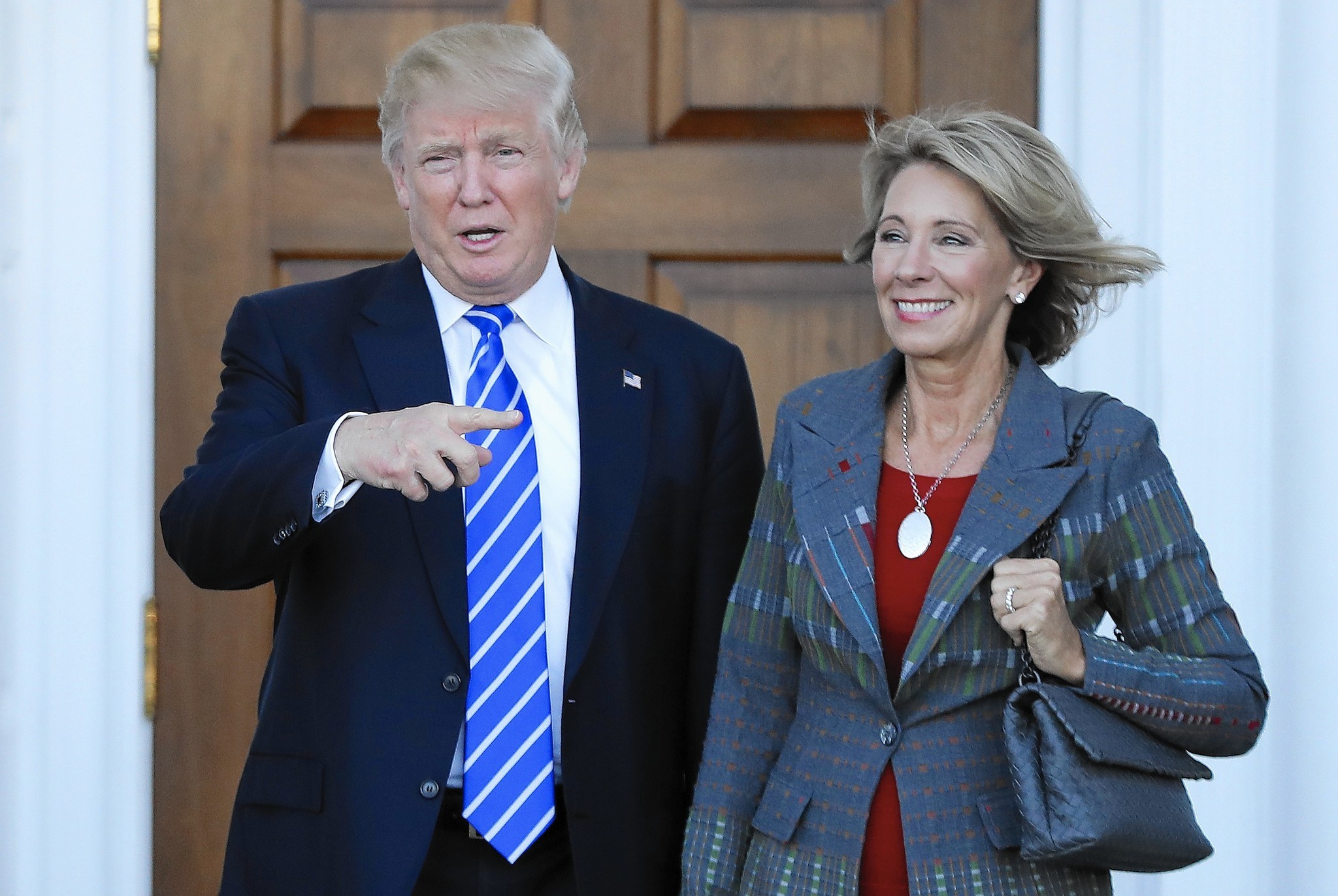In what has been an incredibly contentious start to Donald Trump’s new administration, the nomination, and now confirmation, of education secretary Betsy Devos has drawn significant debate. For many Democrats, the fear of DeVos is two-fold. First, many argue that her support of charter schools and state voucher programs would cripple public education nationwide. Second, DeVos had some rather head-scratching answers to straightforward questions pertaining to the country’s public education system during her nomination hearings. Her responses generated significant criticism, especially from Senate Democrats who protested her confirmation with a 24-hour plea to their Republican colleagues. In the end, the Senate had split the vote 50-50. In a historic decision, Vice President Mike Pence was left to break the tie, and in siding with the majority of his fellow Republicans, confirmed Secretary DeVos. However, for one of President Trump’s most loyal bases, the confirmation of DeVos should raise eyebrows.
According to the Pew Research Center, “Trump’s margin among whites without a college degree is the largest among any candidate in exit polls since 1980. Two-thirds (67%) of non-college whites backed Trump, compared with just 28% who supported Clinton, resulting in a 39-point advantage for Trump among this group.” For that demographic specifically, Betsy DeVos’ distance from the public school system should be worrisome. According to data from the National Center for Education Statistics, 50.4 million students attended public elementary and secondary schools during Fall 2016, compared to 5.2 million students who attended private equivalents. In 2016-17, 3.5 million students are expected to graduate from high school, 3.2 million of which come from public schools. Finally, 73.5% of people between 25-34 with a bachelor’s degree had year-round, full-time jobs, compared to 61.6% for those with some college education. The statistics display a clear conclusion.
Public education in America is still the most popular form of education for American families and that number will not change overnight. If you want to make America great again, one of the first ways of returning to that glorified greatness would be to improve the public education system. However, that logic flies squarely in the face of the beliefs of Secretary DeVos. Charter schools are institutions that receive government funding but do not operate on the same confines as other public schools or districts. According to Uncommon Schools, a charter school management organisation, the schools are “granted greater flexibility in its operations, in return for greater accountability for its performance.” The system works best in environments where public schools are drastically underfunded at a local level, failing the families and communities that rely on them. Alternative teaching methods, more engaged faculty, and creative learning environments are some of the ways these institutions can create better achievement in these communities. But in rural areas where there is only one, maybe two, public schools available, drawing federal resources in order to support the charter program makes no sense. If your local school begins to lose funding, the value of the education will deteriorate which can cause a trickle down effect in student achievement. As noted earlier, the likelihood of future job attainment correlates highly with your level of education. When rural Americans point to fleeing jobs and immigration as causes of local job loss, they should also be aware of public education funding. Why this is valuable is because Secretary DeVos’ background in public education, or rather lack thereof, paints a bleak picture for the future of the institution. Instead of reviving the public school system with the necessary resources in the necessary areas in order to improve student growth and achievement, DeVos is likely to dedicate her time to the promotion of the charter school system in areas that simply don’t need it.
To put it bluntly, DeVos is merely an experienced philanthropist with an opportunity to push an agenda that has been maintained for years. Unfortunately, for most families who rely on public schools, specifically those in rural pockets, that agenda would regress the quality of local education. Where public education is not failing, an alternative would be detrimental.
Max Bayer
(Image courtesy of Chicago Tribune)

